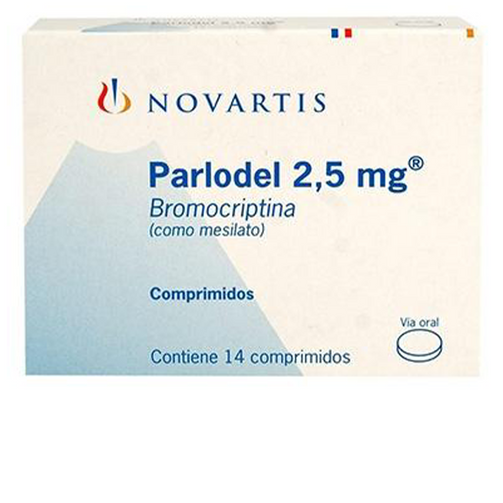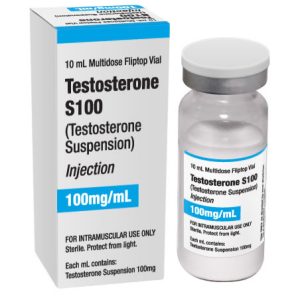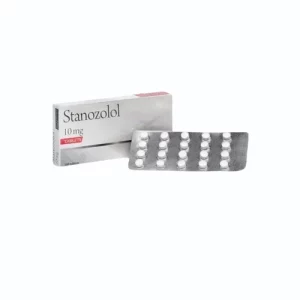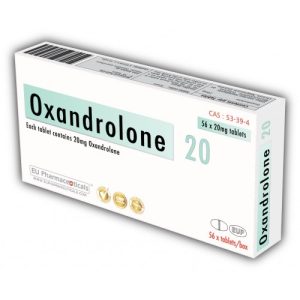Description
Parlodel ( Bromocriptine ) 2,5 mg is a stimulator of dopamine receptors. Inhibitor of secretions of prolactin.
Indications
Infringements of a menstrual cycle, female barreness.
Parlodel-dependent diseases and the conditions which are accompanied or not accompanied by hyperparlodelemia:
- Amenorrhea (accompanied and not accompanied by galactorrhea);
- Oligomenorrhea;
- Insufficiency of a lutein phase;
- Hyperprolactinemic infringements caused by medical products (for example, some psychotropic or antihypertensive preparations).
Parlodel-dependent female barreness: a syndrome of polycystic ovaries and anovulatory cycles (in addition to antiestrogen, for example, clomiphene).
A premenstrual syndrome:
- Morbidity of mammary glands;
- The hypostases connected with a phase of the cycle;
- Meteorism;
- Infringements of mood.
Hyperprolactinemia at men: parlodel-dependent hypogonadism (oligospermia, loss of libido, impotency).
Prolactinomas:
- Conservative treatment of Parlodel-secreting micro and macroadenoma of a hypophysis;
- Preoperative preparation for reduction of volume of a tumor and simplification of its removal;
- Postoperative treatment if the level of prolactin remains raised.
Acromegaly: as additional means in a complex with radiotherapy and operative treatment or, in special cases, as an alternative to surgical or radiotherapy.
Suppression of a lactation:
- Prevention or the termination of a postnatal lactation under medical indications;
- Prevention of lactation after abortion;
- Postnatal hardening of mammary glands;
- Beginning of puerperal mastitis.
Good-quality diseases of mammary glands: mastalgia (in the isolated kind, or in a combination with premenstrual syndrome or good-quality central or cystic changes). Good-quality central and-or cystic changes, especially fibrocystic mastopathy.
Parkinson’s disease: All stages of an idiopathic Parkinson’s disease and postencephalitic parkinsonism either in the form of monotherapy or in a combination with others antiparkinson means.
Collateral action
During first several days of treatment at some patients can be marked nausea; less often – the dizziness, the general weakness, vomiting, however, these phenomena, as a rule, do not demand the termination of treatment.
Parlodel can cause hypotension, including the orthostatic hypotension, which sometimes can lead to a collapse; therefore especially in the first days of treatment, it is recommended to supervise the ABP.
Besides there are messages on the development of blocking in a nose, a lock, drowsiness, headaches, and, less often, confusion of consciousness, psychomotor excitation, hallucinations, dyskinesia, dryness in a mouth, spaces in gastrocnemius muscles, allergic skin reactions and loss of hair. Usually, these by-effects are dose-dependent and can be supervised at a decrease in the dose of Parlodel.
Sometimes at the long treatment of cases of temporary whitening of tips of fingers of hands and feet in reply to the influence of cold are marked, especially at patients at whom the Reyno’s syndrome earlier was observed.
Application of Parlodel for suppression of a physiological lactation in the postnatal period was accompanied by the development of arterial hypertension in rare cases, a heart attack of a myocardium, spasm, a cerebral insult, or mental infringements.
Contraindications
- Uncontrollable arterial hypertension;
- Arterial hypertension at pregnancy (including eclampsy, preeclampsia or arterial hypertension caused by pregnancy);
- Arterial hypertension in the early and late postnatal period;
- CHD and other serious cardiovascular diseases;
- Serious mental diseases current and/or in the anamnesis;
- The raised sensitivity to the components of Parlodel or other ergot alkaloids.
Special instructions:
Care in case of application of Parlodel during the early and late postnatal period is necessary, as sometimes (about 1 case from 100 000) at the application of Parlodel for prevention of a lactation revealed a heart attack of a myocardium, spasms, an insult or mental infringements; sometimes spasms or infringement of brain blood circulation preceded by a strong headache or time infringements of sight.
Parlodel prescription
At the prescription of Parlodel during the early postnatal period, it is necessary to supervise carefully the ABP, especially in the first days of treatment. Extra care is necessary at treatment by Parlodel of patients, recently accepted or accepting the preparations adjusting the ABP. At the occurrence of a constant headache or any attributes of neurotoxicity, the treatment should be immediately stopped:
- It is necessary to appoint Parlodel to patients in minimal therapeutically effective dozes (except for the pathology caused by raised secretion of Parlodel) for prevention of decrease of concentration of Parlodel in plasma of blood below normal values, capable to be reflected badly in the function of a yellow body;
- At mastalgia and nodal and/or cystose changes of mammary glands, it is necessary to exclude the presence of malignant new growths before the application of Parlodel;
- At acromegalia before application of Parlodel, it is necessary to exclude the presence of ulcer diseases of a digestive path, and at their presence, it is better to refuse from the application of Parlodel or to recommend the patient to address immediately to the doctor at the occurrence of any infringements from the system of digestion;
- Care is necessary for connection with some messages on gastroenteric bleedings at patients with acromegalia on a background of treatment with Parlodel, notwithstanding that their causal interrelation is not established.
Care at the purpose of Parlodel is necessary for patients with mental or heavy cardiovascular diseases in the anamnesis.
Side effects
At treatment with Parlodel, especially in the first days, the occurrence of hypotension is possible, care, therefore, is necessary to be taken at work with various machines and mechanisms. The bearableness of Parlodel may worsen at the reception of alcohol.
There are separate messages on the occurrence of pleural effusion at patients with parkinsonism, having received high doses of Parlodel for a long time, therefore a patient with a pleuropulmonary pathology of not clear genesis should be surveyed carefully and preparation should be canceled at the acknowledgment of a causal relationship.
Less frequent side effects
Some cases of development of retroperitoneal fibrosis at the patients, who have been receiving Parlodel during some years in daily doses over 30 mg are described. For duly diagnostics retroperitoneal fibrosis on early, reverse stages of illness it is recommended to pay attention to its displays (pain in a waist, hypostases of the bottom finitenesses, infringement of function of kidneys, etc.) at the given category of patients.
At suspicion or acknowledgment of the presence of fibrous changes in retroperitoneal space, the treatment by Parlodel should be canceled.
The treatment by Parlodel can restore fertility, therefore at undesirability of approach of pregnancy, it is recommended to use reliable methods of contraception. At the approach of pregnancy, it is recommended to cancel Parlodel, reception of preparation may be continued only under strict indications:
- At canceling of Parlodel on early terms of pregnancy, its negative influence on the current and an outcome of pregnancy is not noted. At the approach of pregnancy at patients with an adenoma of a hypophysis treatment by Parlodel should be canceled, establishing careful supervision over the patient during pregnancy;
- At occurrence of attributes of the expressed increase of a prolactinoma (for example occurrence of a headache or narrowing of fields of vision) treatment with Parlodel is possible to be renewed or operative intervention should be undertaken;
- Application of Parlodel at the treatment of female barrenness with the subsequent approach of pregnancy (over 2000 cases) was not accompanied by the raised risk of abortions, premature birth, or developmental anomalies.









Reviews
There are no reviews yet.